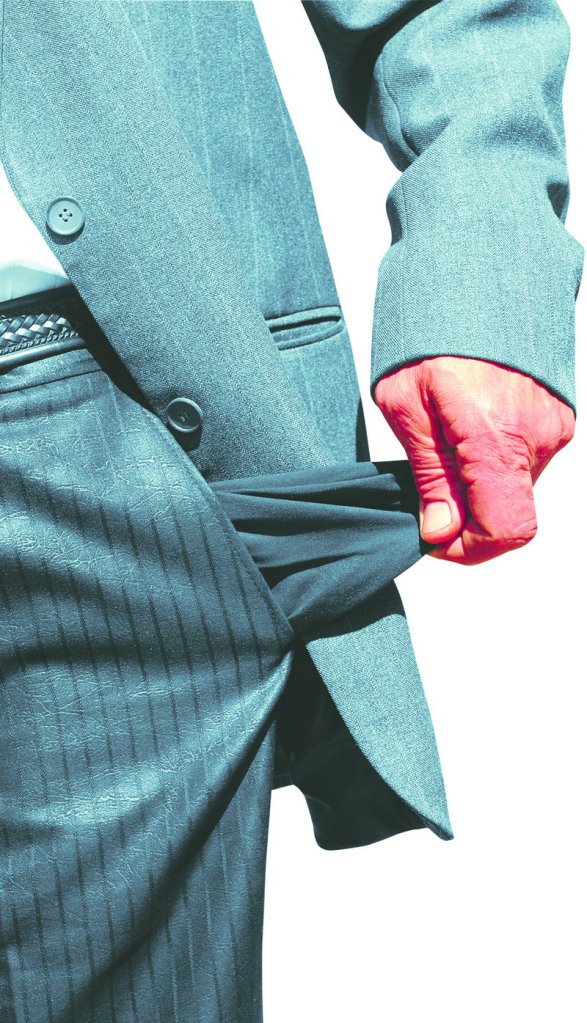The trouble with Wall Street isn’t that too many bankers get rich in the booms. The trouble is that too few get poor — really, suitably poor — in the busts. To the titans of finance goes the upside. To we the people, nowadays, goes the downside. How much better it would be if the bankers took the losses just as they do the profits.
Happily, there’s a ready-made and time-tested solution. Let the senior financiers keep their salaries and bonuses, and let them do with their banks what they will. If, however, their bank fails, let the bankers themselves fail. Let the value of their houses, cars, yachts, paintings, etc., be assigned to the firms’ creditors.
Of course, there are only so many mansions, Bugattis and Matisses to go around. And many, many such treasures would be needed to make the taxpayers whole for the serial failures of 2007-09. Then again, under my proposed reform not more than a few high-end sheriff’s auctions would probably ever be held. The plausible threat of personal bankruptcy would suffice to focus the minds of American financiers on safety and soundness as they have not been focused for years.
“The fear of God,” replied George Gilbert Williams, president of Chemical Bank of New York around the turn of the 20th century, when asked the secret to his success. “Old Bullion,” they called Chemical for its ability to pay out gold to its depositors even at the height of a financial panic. Safety was Chemical’s stock in trade. Nowadays, safety is nobody’s franchise except Washington’s. Gradually and by degree, starting in the 1930s — and then, in a great rush, in 2008 — the government has nationalized it.
No surprise, then, the perversity of Wall Street’s incentives. For rolling the dice, the payoff is potentially immense. For failure, the personal cost, while regrettable, is manageable.
Senior executives of Lehman Brothers, Citi, AIG and Merrill Lynch, among other stricken institutions, did indeed lose their savings. What they did not necessarily lose is the rest of their net worth.
In Brazil, which learned a thing or two about frenzied finance during its many bouts with hyperinflation, bank directors, senior bank officers and controlling bank stockholders know that they are personally responsible for the solvency of the institutions with which they are associated.
Let them fail, and their net worths are frozen for the duration of often-lengthy court proceedings. If worse comes to worse, the responsible and accountable parties can lose their all.
The substitution of collective responsibility for individual responsibility is the fatal story line of modern American finance. Bank shareholders used to bear the cost of failure, even as they enjoyed the fruits of success.
If a bank in which shareholders invested went broke, a court-appointed receiver dunned them for money with which to compensate depositors and other creditors. That system was in place for 75 years, until the Federal Deposit Insurance Corp. pushed it aside in the 1930s.
One can imagine just how welcome was a receiver’s demand for a check from a shareholder who by then ardently wished that he or she had never heard of the bank in which it was his or her misfortune to invest.
Nevertheless, conclude a pair of academics who gave the “double liability system” serious study (Jonathan Macey, now of Yale Law School and its School of Management, and Geoffrey Miller, now of the New York University School of Law), the system worked reasonably well.
“The sums recovered from shareholders under the double-liability system,” they wrote in a 1992 Wake Forest Law Review essay, “significantly benefited depositors and other bank creditors, and undoubtedly did much to enhance public confidence in the banking system despite the fact that almost all bank deposits were uninsured.”
Like one of those notorious exploding collateralized debt obligations, the American financial system is built as if to break down. The combination of socialized risk and privatized profit all but guarantees it. And when the inevitable happens? Congress and the regulators dream up yet more ways to try to outsmart the people who have made it their business in life not to be outsmarted.
And so it is again in today’s debate over financial reform. From the administration and from both sides of the congressional aisle come proposals to micromanage the business of lending, borrowing and market-making: new accounting rules (foolproof this time, they say), higher capital standards, more onerous taxes. If piling on new federal rules was the answer, we’d long ago have been in the promised land.
Until 1999, Goldman Sachs was a partnership, with the general partners bearing general and unlimited liability for the firm’s debts. Today, Goldman, like the vast majority of American financial institutions, is a corporation. Its stockholders are liable only for what they invest, no more. And while there are plenty of sleepless nights, the constructive fear of financial oblivion is, for the senior executives, an all-too-distant nightmare.
The job before Congress is to bring the fear of God back to Wall Street. Not to stifle enterprise but quite the opposite: to restore real capitalism. all means, let the bankers savor the sweets of their success. But let them, and their stockholders, pay dearly for their failures. Fair’s fair.
James Grant is editor of Grant’s Interest Rate Observer.
Send questions/comments to the editors.



Success. Please wait for the page to reload. If the page does not reload within 5 seconds, please refresh the page.
Enter your email and password to access comments.
Hi, to comment on stories you must . This profile is in addition to your subscription and website login.
Already have a commenting profile? .
Invalid username/password.
Please check your email to confirm and complete your registration.
Only subscribers are eligible to post comments. Please subscribe or login first for digital access. Here’s why.
Use the form below to reset your password. When you've submitted your account email, we will send an email with a reset code.